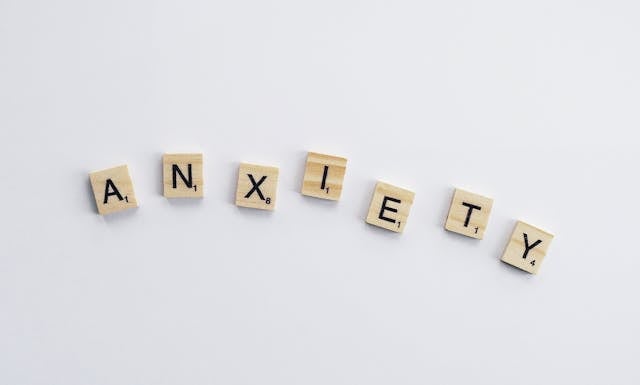How to Support Someone With an Anxiety Disorder

Witnessing someone you care about struggle with anxiety is a uniquely painful experience. You watch as a friend, partner, or family member is hijacked by an invisible force, one that whispers convincing, debilitating lies about the world and their safety in it. It’s frustrating, heartbreaking, and often leaves you feeling helpless. It’s crucial to realize that anxiety disorders are not simply a case of “being stressed” or “overthinking”—they are complex, real mental illnesses that require consistent support and, often, professional intervention.
If you are currently feeling lost about how to help, the best first step you can take is to become informed and redefine what “support” really means. For many, navigating severe worry or panic requires dedicated, evidence-based care. Knowing how to connect them with a professional is a critical part of your role. If you are seeking specialized help, reaching out to an experienced anxiety therapist can provide the necessary tools and strategies for recovery. A trained professional is equipped to handle the nuances of anxiety, ensuring your loved one receives the treatment they deserve.
Here is a guide to shifting your approach from simply worrying to actively, constructively helping.
1. Stop Trying to “Fix” It—Start Validating It
The most common, well-intentioned mistake supporters make is trying to talk their loved one out of their fear. Phrases like, “It’s fine, there’s nothing to worry about,” or “Just breathe, you’re safe,” often backfire. While those statements are factually true, they invalidate the emotional reality of the person with anxiety. To them, the danger feels real.
Instead of minimizing, try validating. Acknowledgment is a far more powerful tool than dismissal.
- Avoid: “Don’t be silly, you know that meeting isn’t going to be a disaster.”
- Try: “I hear how worried you are about this meeting. That sounds incredibly stressful. I’m here with you.”
- Avoid: “Why can’t you just relax?”
- Try: “I can see you’re feeling a lot of panic right now. Tell me what you need, or if you just need me to sit with you.”
Validation does not mean agreement; it means accepting their feelings as legitimate. This acceptance creates a safe space, which is the necessary bedrock for therapeutic progress.
2. Learn the Language of Anxiety
To support someone effectively, you need to understand the mechanics of their specific disorder. Anxiety can manifest in dozens of ways—from generalized worry and social phobia to panic attacks and obsessive-compulsive rituals. The support required for someone paralyzed by agoraphobia is different from the support needed for someone with health anxiety.
Take the time to research their diagnosis (if they have one) from reliable sources. Understanding that a panic attack is a misfiring of the body’s fight-or-flight system, rather than a sign of actual danger, can help you remain calm and grounded during a crisis. Educational non-profits like the National Alliance on Mental Illness (NAMI) offer extensive, free resources and education for families supporting a loved one with a mental illness.
3. Encourage, Don’t Enable, Avoidance
Anxiety thrives on avoidance. If a person with social anxiety cancels plans, the anxiety “wins,” reinforcing the belief that avoiding the situation was necessary for safety. As a supporter, your job is not to eliminate their discomfort, but to gently encourage them to tolerate it.
This is a delicate balance. You must never pressure or shame them, but rather offer to be their co-pilot. For instance, if they are afraid to go to the grocery store:
- Don’t say: “I’ll just go for you. You don’t have to worry about it.” (Enabling avoidance)
- Do say: “How about we drive there together? We can walk in for just five minutes, and if you feel overwhelmed, we’ll leave. We’re doing this on your terms.” (Encouraging manageable exposure)
Small victories build confidence. Recovery is a marathon of tiny steps forward, not a sprint toward a finish line.
4. Prioritize and Protect Your Own Well-Being
It is impossible to be an effective source of strength when your own emotional reserves are depleted. Supporting someone through chronic anxiety is emotionally draining, and it is entirely okay—and necessary—to set boundaries.
- Don’t take it personally. Anxiety often makes people irritable, withdrawn, or demanding. Remember that these behaviors are symptoms of the illness, not reflections of your worth or their love for you.
- Take scheduled breaks. This could mean taking an hour to exercise, pursuing your own hobby, or simply leaving the house without them. You need time to recharge.
- Seek your own support system. Talk to a trusted friend or join a support group for caregivers. You need a space where you can express your own frustration and exhaustion without feeling guilty or disloyal. For further reading and information on all aspects of mental health, the National Institute of Mental Health is an excellent federal resource.
Supporting someone with an anxiety disorder is an act of deep and unwavering love. It requires a commitment to patience, learning, and self-compassion. Remember that you are not responsible for their recovery, only for providing a supportive, stable, and loving environment in which they can do the work. Hope and healing are possible, and your steadfast presence makes all the difference.







